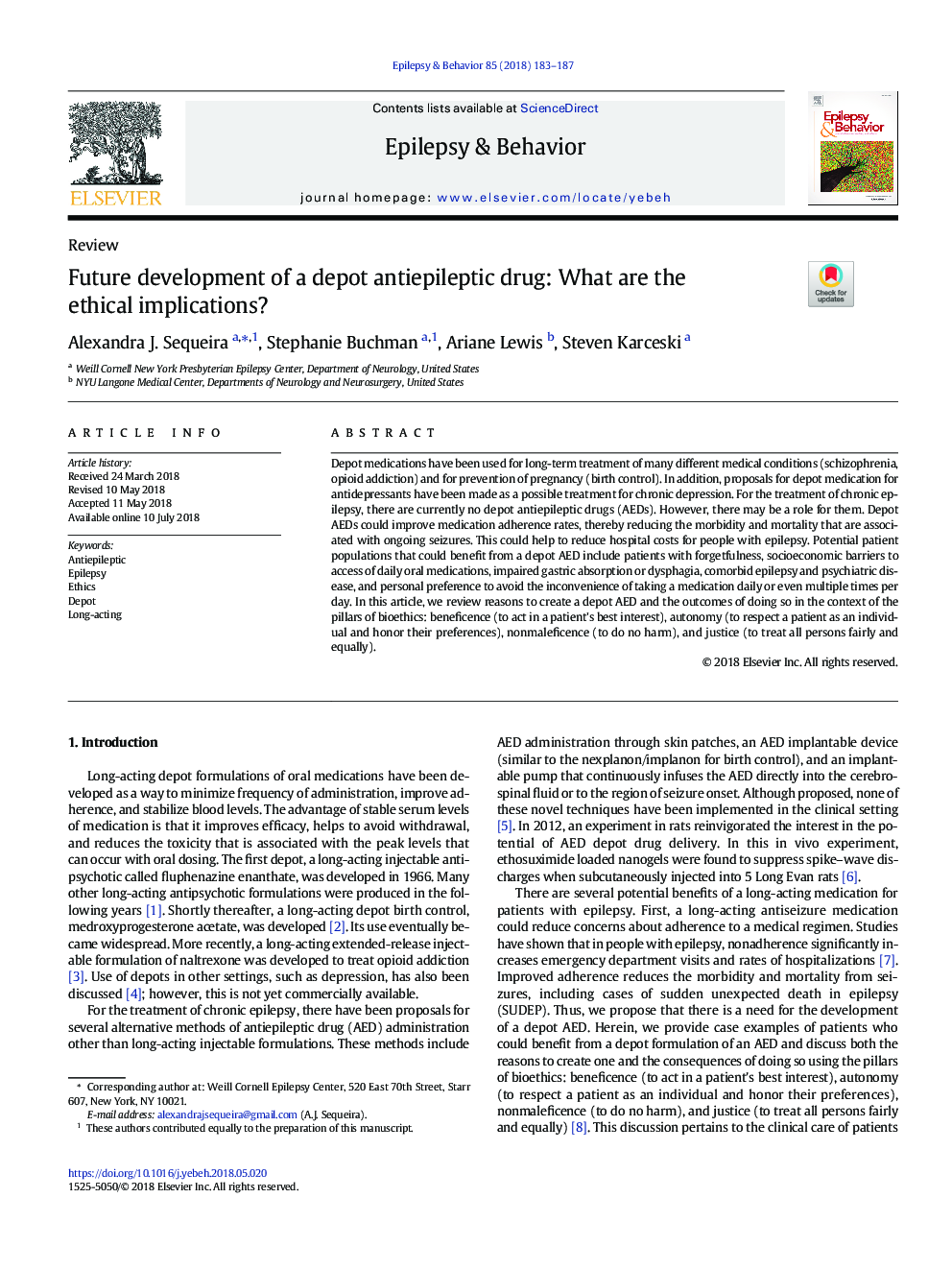| کد مقاله | کد نشریه | سال انتشار | مقاله انگلیسی | نسخه تمام متن |
|---|---|---|---|---|
| 8683482 | 1579807 | 2018 | 5 صفحه PDF | دانلود رایگان |
عنوان انگلیسی مقاله ISI
Future development of a depot antiepileptic drug: What are the ethical implications?
ترجمه فارسی عنوان
توسعه آینده یک داروی ضد صرع دپو: پیامدهای اخلاقی چیست؟
دانلود مقاله + سفارش ترجمه
دانلود مقاله ISI انگلیسی
رایگان برای ایرانیان
کلمات کلیدی
ضد صرع، صرع، اخلاق، انبار، طولانی مدت،
موضوعات مرتبط
علوم زیستی و بیوفناوری
علم عصب شناسی
علوم اعصاب رفتاری
چکیده انگلیسی
Depot medications have been used for long-term treatment of many different medical conditions (schizophrenia, opioid addiction) and for prevention of pregnancy (birth control). In addition, proposals for depot medication for antidepressants have been made as a possible treatment for chronic depression. For the treatment of chronic epilepsy, there are currently no depot antiepileptic drugs (AEDs). However, there may be a role for them. Depot AEDs could improve medication adherence rates, thereby reducing the morbidity and mortality that are associated with ongoing seizures. This could help to reduce hospital costs for people with epilepsy. Potential patient populations that could benefit from a depot AED include patients with forgetfulness, socioeconomic barriers to access of daily oral medications, impaired gastric absorption or dysphagia, comorbid epilepsy and psychiatric disease, and personal preference to avoid the inconvenience of taking a medication daily or even multiple times per day. In this article, we review reasons to create a depot AED and the outcomes of doing so in the context of the pillars of bioethics: beneficence (to act in a patient's best interest), autonomy (to respect a patient as an individual and honor their preferences), nonmaleficence (to do no harm), and justice (to treat all persons fairly and equally).
ناشر
Database: Elsevier - ScienceDirect (ساینس دایرکت)
Journal: Epilepsy & Behavior - Volume 85, August 2018, Pages 183-187
Journal: Epilepsy & Behavior - Volume 85, August 2018, Pages 183-187
نویسندگان
Alexandra J. Sequeira, Stephanie Buchman, Ariane Lewis, Steven Karceski,
